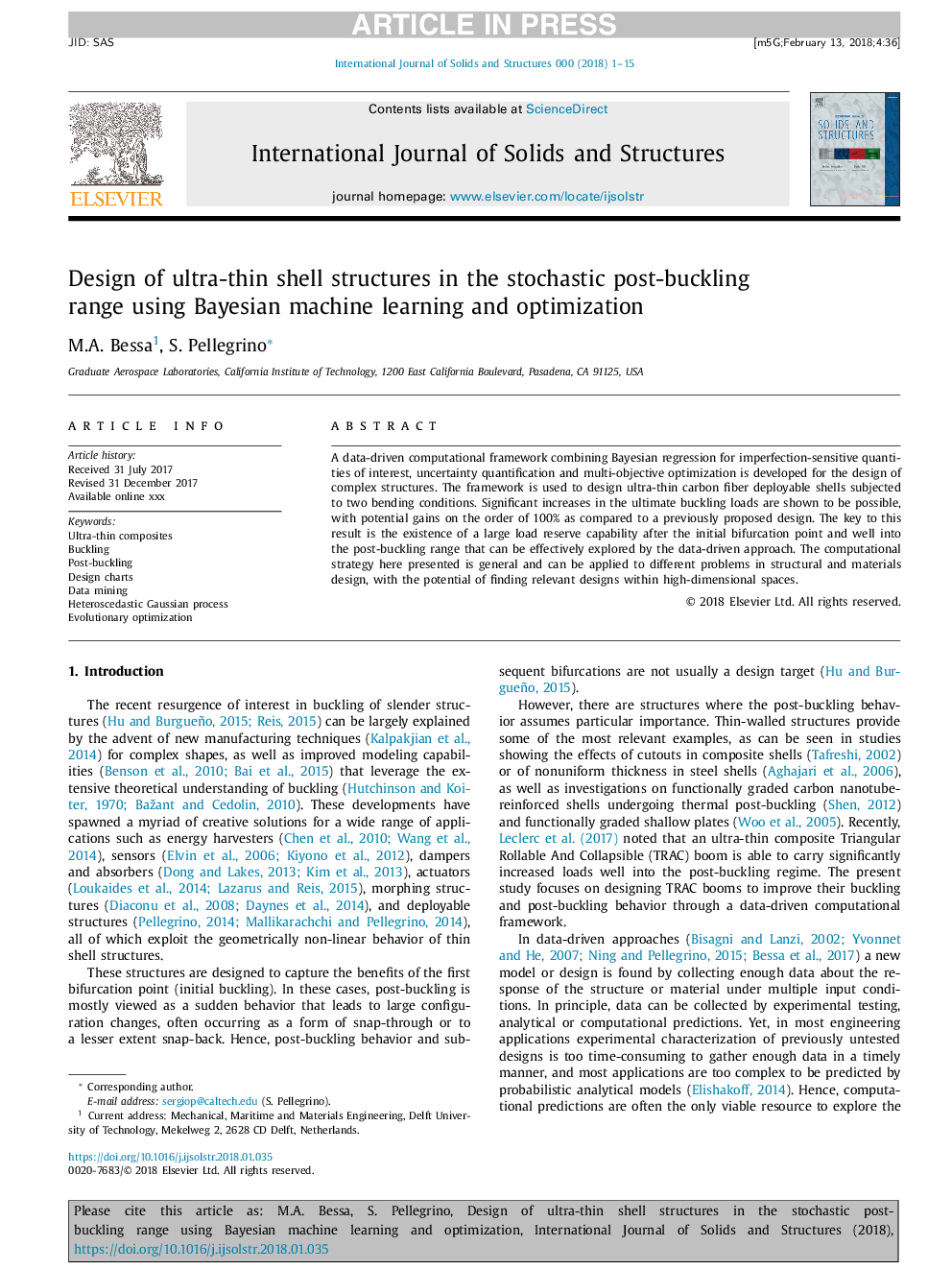| Article ID | Journal | Published Year | Pages | File Type |
|---|---|---|---|---|
| 6748344 | International Journal of Solids and Structures | 2018 | 15 Pages |
Abstract
A data-driven computational framework combining Bayesian regression for imperfection-sensitive quantities of interest, uncertainty quantification and multi-objective optimization is developed for the design of complex structures. The framework is used to design ultra-thin carbon fiber deployable shells subjected to two bending conditions. Significant increases in the ultimate buckling loads are shown to be possible, with potential gains on the order of 100% as compared to a previously proposed design. The key to this result is the existence of a large load reserve capability after the initial bifurcation point and well into the post-buckling range that can be effectively explored by the data-driven approach. The computational strategy here presented is general and can be applied to different problems in structural and materials design, with the potential of finding relevant designs within high-dimensional spaces.
Related Topics
Physical Sciences and Engineering
Engineering
Civil and Structural Engineering
Authors
M.A. Bessa, S. Pellegrino,
